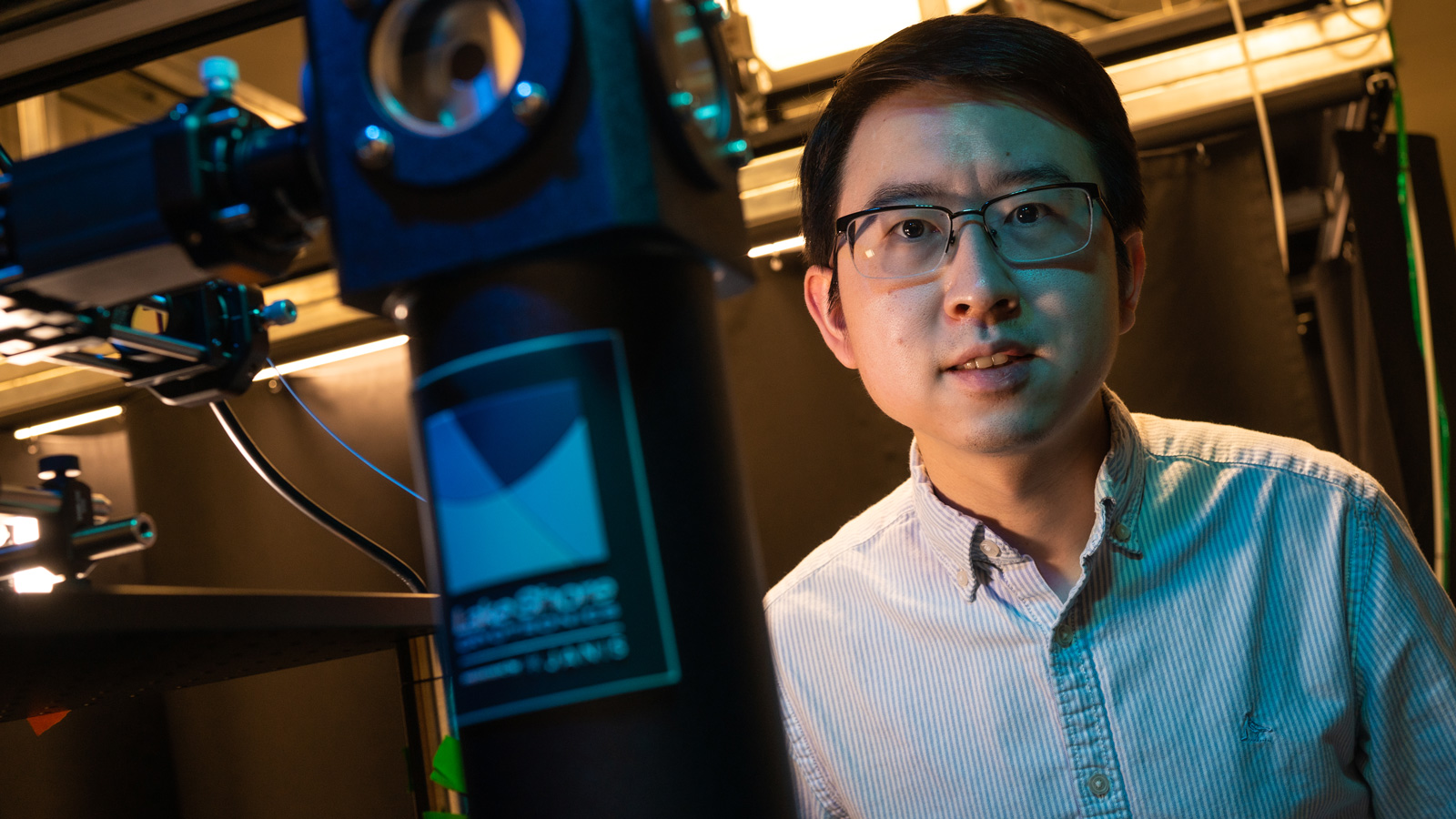Songtao Chen hopes to build quantum memories into solid materials and use them in devices for processing, storing and transferring quantum information.
If that sounds removed from day-to-day concerns, consider Chen’s explanation: “We are working with crucial components for quantum networking and distributed quantum computing. These technologies will have significant applications in such areas as secure communications and high-performance computing. They will touch everyone.”
Chen has received a three-year, $300,000 Welch Foundation grant to work on “Fluorescence and Spin Properties of Quantum Defects in Silicon.”
Chen is an assistant professor of electrical and computer engineering and a researcher in the Rice Quantum Initiative. Earlier this year, he won a National Science Foundation CAREER Award to advance development of quantum networks by leveraging imperfections — known as point defects — in silicon material.
His research examines how the interaction between photons and T centers, a recently identified type of point defect in silicon, can be used for quantum information applications.
“Atoms in solid-state silicon are organized in a perfect lattice,” Chen said. “The T center is a point defect in the regularity of this lattice. This defect has a spin component that we can use to build qubits, the basic unit for quantum information processing. It also has an optical component that can be exploited to interface with the spin.”
“With the Welch proposal we will use advanced spectroscopic and quantum-control tools to investigate T centers in silicon material. These T centers have promising long quantum coherence and can emit light at telecom wavelength, so they are good for making quantum memories and are compatible with existing fiber telecommunication technologies,” Chen said.
The Welch-funded work will investigate the optical and spin properties of the T centers in silicon to prepare the way for developing T-center-based quantum memory devices.
When coupled with the already-existing silicon photonic industry, Chen expects his T-center platform to boost production of spin-based quantum photonic chips.
“This can further advance the development of small-footprint quantum information processors,” Chen said.
Chen earned his Ph.D. in electrical engineering from Brown in 2018, worked as a postdoctoral research associate at Princeton and joined the Rice faculty in 2021.

